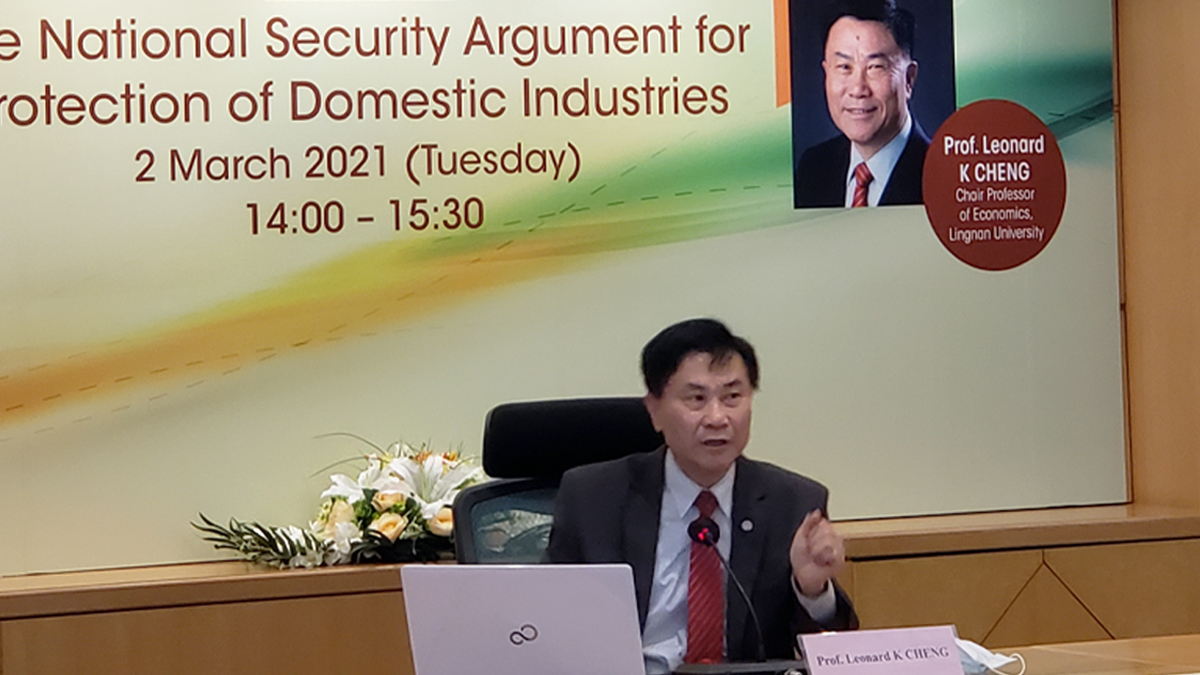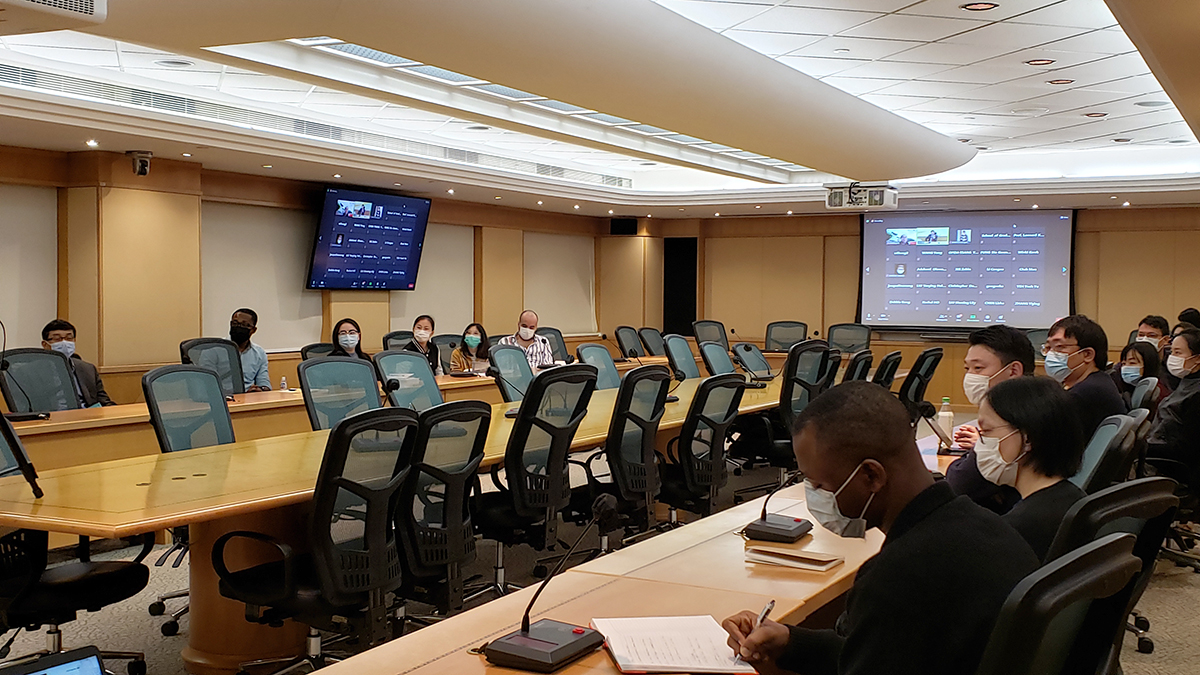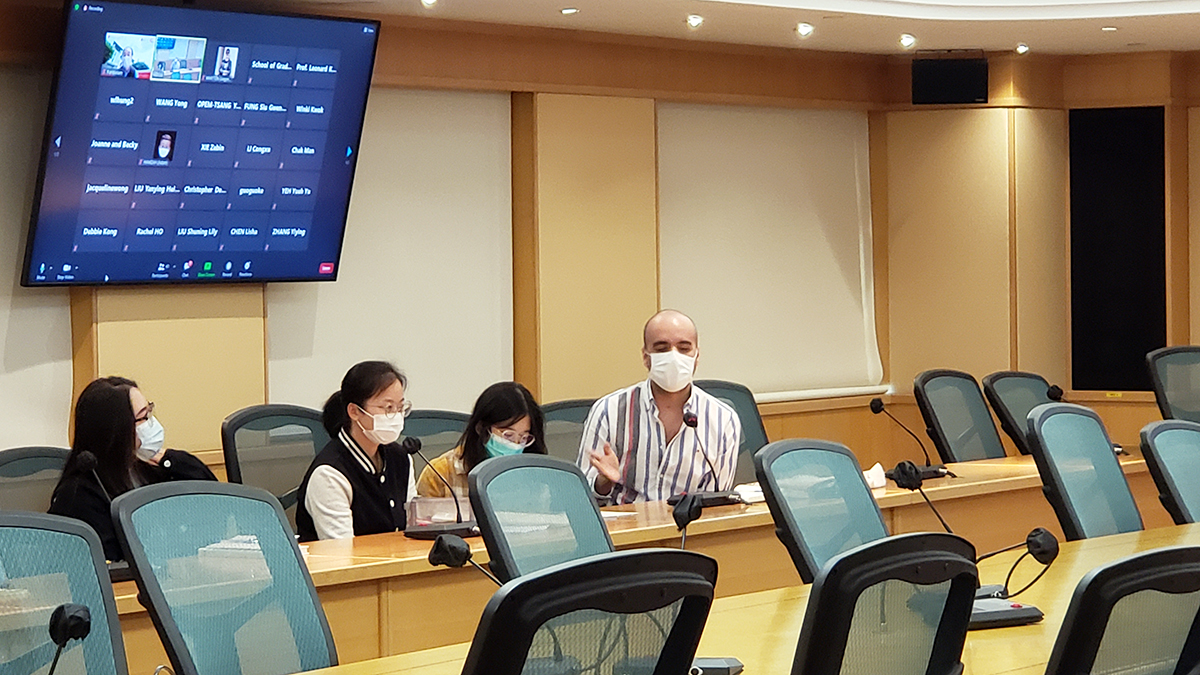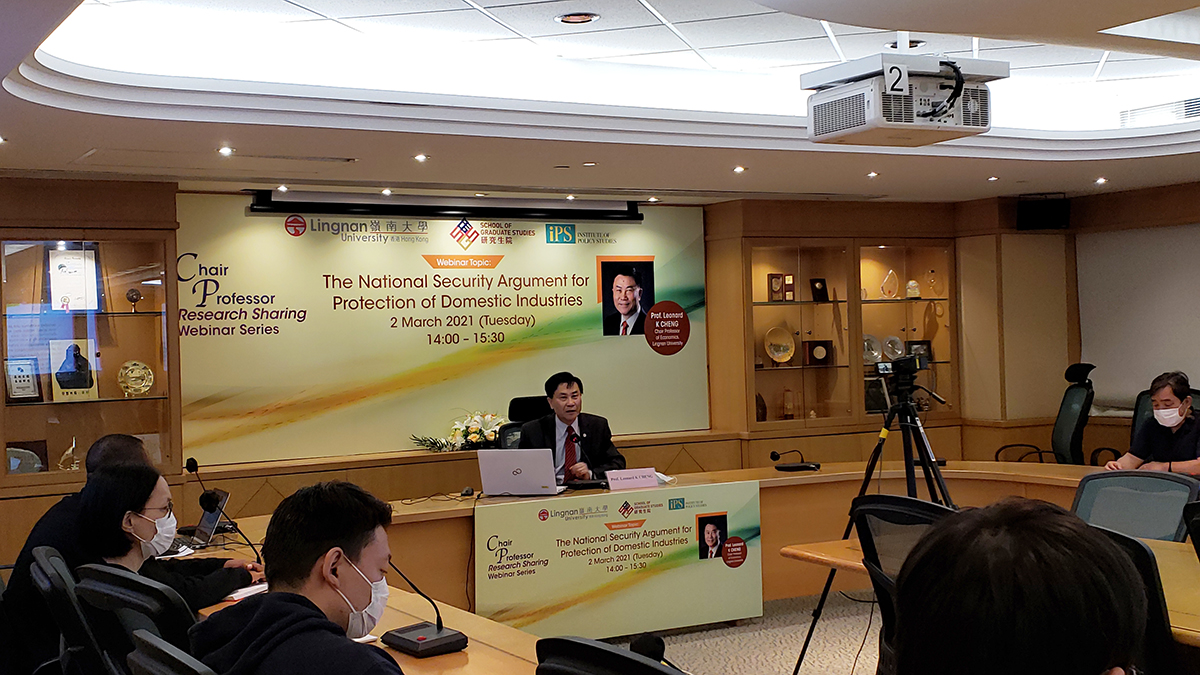In the first in the series of Chair Professor Research Sharing online seminars, Lingnan University President Leonard K Cheng initially focused on the background to, and the findings of, a recent paper he co-authored with Professors Gregory W Whitten and Jingbo Hua, titled The National Security Argument for Protection of Domestic Industries.
Prof Cheng then went on to share his insights into what made for a worthwhile and impactful economics research project.
Background to the ‘National Security’ paper
A previous paper Prof Cheng had co-authored was inspired by the disputes around Sino-US trade imbalances. “The trade imbalances we hear about are based on gross values: the total value of exports and the total value of imports,” he explained. “But in order to export something you might need to import something.”
For example, the true value added to iPhones in China is small, as much of the cited total comes from intermediate goods made in other countries.
However, although the project produced figures that could be used by the Chinese government in negotiations, the resulting paper did not get published in the top academic journals.
The project that was the main focus of Prof Cheng’s presentation was born out of the protectionist trade policies pursued by former US president Donald Trump, during his time in office. These were conducted outside the existing multi-lateral systems under the guise of national security.
He realised this might be an interesting field for research. “But I was also aware that not much had been written about this area because very seldom had governments resorted to national security arguments to protect their industries.”
Main findings
Even before the headline-grabbing ban on Huawei products, the US slapped tariffs on steel and aluminum imports from the rest of the world in March 2018. However, as US Defense Secretary James Mattis pointed out, the country’s military required only three percent of national production, so this was a pure case of protectionism.
American concerns about foreign direct investment (FDI), which can cede a degree of control over a business, were also growing. Between 2005 and 2015, the number of Chinese FDI transactions in the US was smaller than those of the UK and Canada. However, taking just the period 2011-2015, the Chinese figure was the largest, reflecting a general rise in the nation’s outward FDI.
Then Donald Trump came to power and the US blocked a rapidly increasing number of Chinese FDI applications. These were not only in the tech and military sectors, but also covered enterprises engaged in pig breeding.
Looking at the theoretical background, Prof Cheng explained that under Alexander Hamilton - the first US Secretary of the Treasury – the US used the “Infant industries” argument to protect industries in what was then a developing economy.
While tariffs, domestic production subsidies, consumption taxes or input subsidies, can be used to protect a nation’s industries, Trump’s use of these levers often left the country worse off.
“The optimum policy would be the policy that targets the source of distortion,” Prof Cheng pointed out. “If you target more than the source of distortion, you may solve the problem but you also create another problem - and side effects.”
Military strategists or defence economists may not care about the scope of protectionism but economists have an obligation to look for the minimum economic costs to achieve the given national security objectives.
One of the goals of the US 2018 National Defense Strategy (NDS) was a ‘decisive’ and ‘dominant’ military advantage over any adversary - not parity. Both the NDS and the country’s 2017 National Security Strategy, identified the threat from China and Russia as greater than that from terrorism or rogue states.
The US claimed China was not only a ‘serious intellectual property threat’, but was engaged in predatory economics with the goal of achieving lndia-Pacific regional hegemony in the near-term, and global preeminence in the future.
Prof Cheng explained his and his co-author’s report shows why most of the White House's allegations against China should be rejected. If no international laws, or bilateral or multilateral agreements, have been breached, China is a scapegoat for the complainants' own failures, with 5G a good example.
Empirical research in economics has greater returns
Professor Cheng then shared his thoughts on what constitutes worthwhile economic research. First he looked at the advice he’d been given by his professors at the University of California, Berkeley. He referenced Professor Hal Varian, who asserted that, while theoretical work is important, empirical work that follows or anticipates new economic trends and social needs, may generate research with greater impact.
From his observations of presentations at the American Economic Association, Prof Cheng noted that faculty at the top universities also tended to work on empirical research, aiming to be trend setters rather than trend followers
While, analysing the response to his own publications, he’d found that one third (or 1650) of the approximately 4,800 citations he’d received, came from just one co-authored empirical paper on determinants of the location of foreign direct investment in China – thereby backing up his contention with personal experience.






